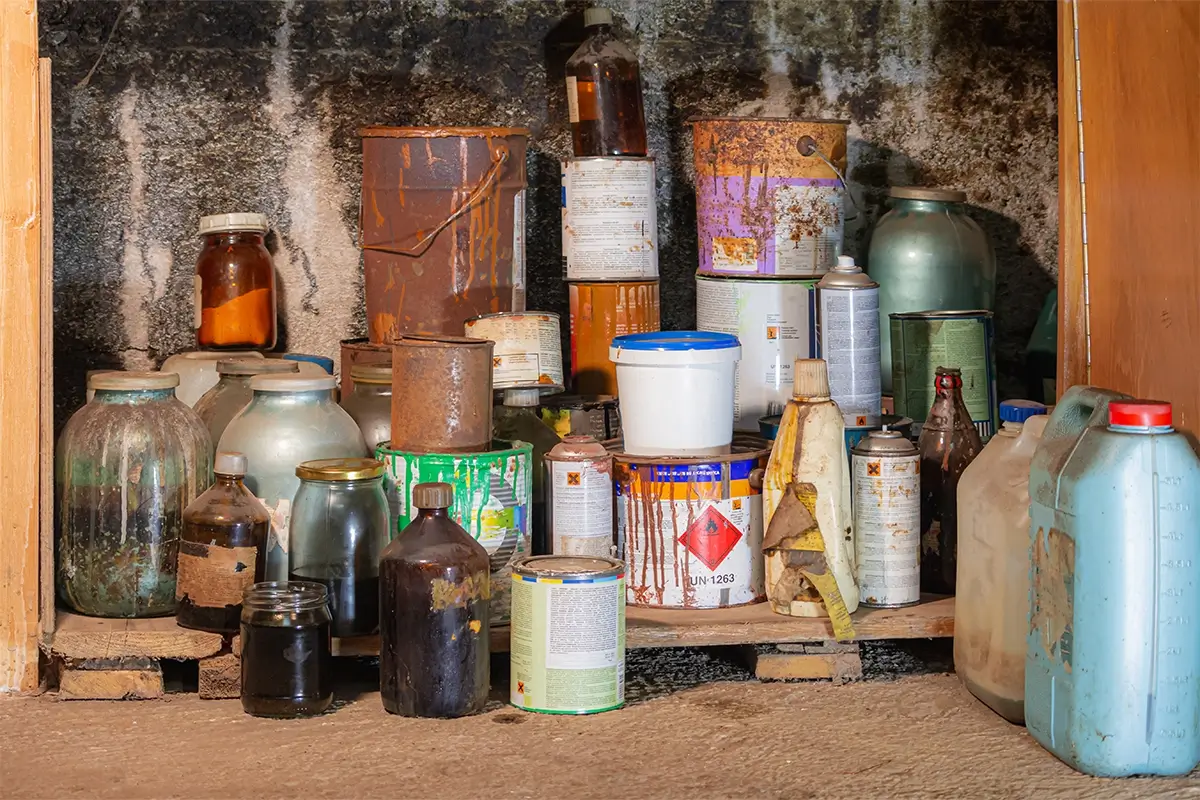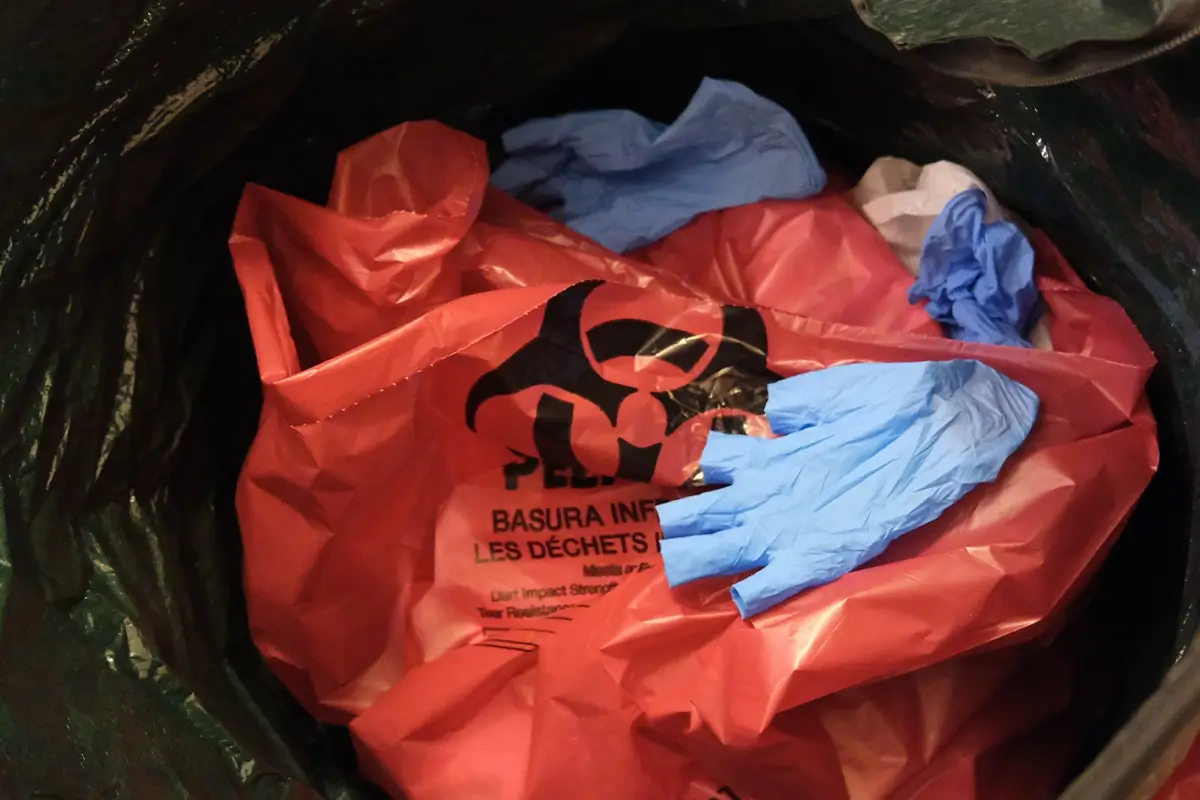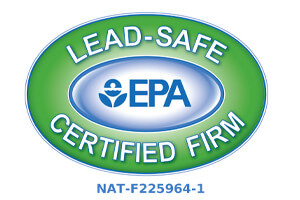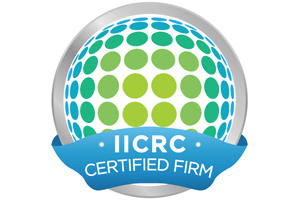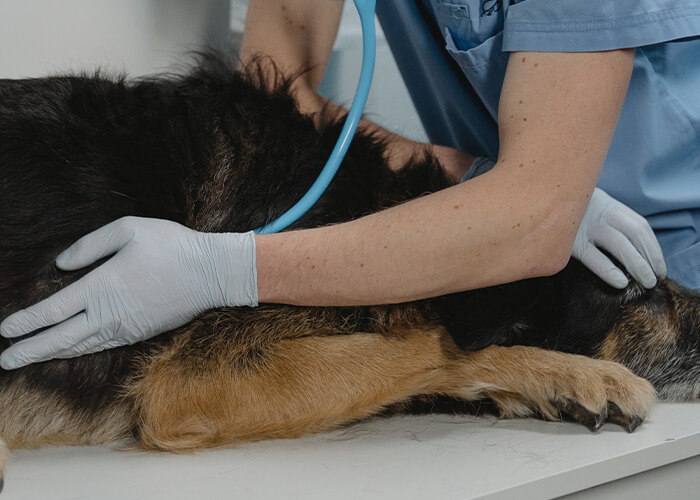
For any dog lover, seeing our pets suffer from diseases such as giardia and parvo is difficult. Both dangerous to our dog’s health, giardia and parvo are also extremely infectious and difficult to eradicate from our homes and yards. If your dog has contracted one of these diseases, though, doing your best to clean the affected area so no other pets become sick and to prevent re-infection is a vital step to take.
What is giardia?
Giardia is a small, microscopic parasite that infects the intestines of both animals and humans. Though it is rarely contagious between dogs and humans due to the different types of giardia, the disease is extremely contagious from dog to dog.
A dog contracts giardia when they come into contact with infected feces and swallow or sniff a parasite. For example, the dog may become infected when they step where another dog defecated then lick themselves later, drink infected water from a pond, creek, or puddle, eat feces left by another dog, or play in contaminated soil. A dog cannot contract the parasite through blood or other bodily fluids.
Once a dog has contracted the parasite, the animal may or may not show symptoms. If they do exhibit signs, symptoms include diarrhea, gas, abdominal discomfort, vomiting, and nausea. These symptoms can prevent them from eating and the dog may lose weight and become dehydrated as a result.
If you suspect your dog has giardia, a veterinarian can tell with a simple fecal test. They will then prescribe medications to kill the parasite and treat the symptoms including administering fluids to prevent dehydration.
What is parvo?
Parvo, or canine parvovirus is a virus that attacks a dog’s intestines. This is a disease usually contracted by puppies who are not yet old enough to receive the parvo vaccine and don’t have the antibodies to fight it. Though some dogs survive the virus, many dogs die as a result and leave the virus behind ready to infect other dogs that may come into contact with the area.
Spread through a dog’s feces, parvo infects dogs that swallow even small traces of fecal matter left by an infected dog or are handled by someone carrying the virus after touching another infected dog. Once in the body, the virus kills intestinal cells, destroys the gut barrier, and impairs nutritional absorption. In some cases, parvo also affects the heart. Symptoms of parvo include bloody diarrhea, vomiting, fever, lethargy, weight loss, and dehydration. If your dog has any of these symptoms, you should call your vet immediately as parvo can be life-threatening.
Though there is no cure for parvo, dogs are given vaccines as puppies and if the series is done correctly, most dogs will be immune by six months of age. Up until that time, it’s important to keep puppies away from public areas where they can become infected such as dog parks and dog day cares. If your dog does contract parvo, the vet will treat the symptoms while the dog’s immune system fights the infection.
Cleaning and disinfecting your home
If your dog has contracted giardia or parvo, it is important to clean all the items and surfaces with which your dog has come into contact in order to prevent reinfection or another dog becoming infected by the disease. Though it’s nearly impossible to get rid of the parasites or virus completely, especially outside, you can greatly reduce the risk of the disease spreading. While the dog is sick and for several days after:
- Often and thoroughly wash your hands
- Items and surfaces need to be washed daily while the dog is being treated and continue for several days afterward in order to prevent reinfection
- Don’t cross-infect clean areas of your home with objects from areas that haven’t been cleaned yet such as your shoes
- Keep infected pets away from carpeted areas of your home
Hard surfaces
- Wear gloves
- Using paper towels, wipe up all fecal matter and dispose of the towels and gloves in a plastic bag then throw the bag away in the regular trash
- Scrub all hard surfaces using hot water and soap until it appears completely clean
- Using either a cleaner containing a “quaternary ammonium compound” otherwise known as QATS or listed as alkyl dimethyl ammonium chloride, or a solution of bleach mixed with water in a ratio of ¾ cup of bleach to one gallon of water, leave the solution on the surface for ten minutes or the amount listed on the cleaner’s instructions.
- Wipe the surface clean then rinse with water
Linen, bedding, towels, cloth toys - Wash items in a washer using laundry soap then dry on the highest heat setting for at least 30 minutes
- If no dryer is available, air dry items outside in direct sunlight
Dishwasher-safe bowls and toys
- Wash all items in a dishwasher with a dry cycle and heat to the highest degree possible.
- If a dishwasher is unavailable, submerge items in boiling water for at least one minute.
Carpet and upholstery
- Wearing gloves, clean any contaminated area with paper towels then discard in a plastic bag
- Clean the entire affected area with detergent, carpet cleaner, or upholstery cleaner while following the directions on the bottle
- Steam clean the area at the highest temperature possible using a cleaner with a “quaternary ammonium compound”
Outdoors
It is nearly impossible to eradicate parvo or giardia from the outdoors where your pet goes to the bathroom. Even if you bleached the grass, it still wouldn’t kill all the viruses and parasites present and would kill all your plants in the process.
When it comes to giardia and parvo, the best thing to do is to clean all possible hard surfaces then let the virus and parasite die on their own. In the meanwhile, guidelines to follow include:
- Keep infected dogs away from other pets
- Designate a spot in the yard for your pet to go and keep them out of all other common areas
- Promptly remove feces from the yard after your dog uses the restroom and wash your hands immediately
- Do not wear the same shoes inside as you do outside
- Always wear plastic gloves when gardening
- Disinfect all gardening tools after use
- For giardia: If the weather is below 77 degrees, then the yard will have giardia cysts present for at least a month. If the weather is consistently hotter than 77 degrees, then the giardia cysts will have all died off after one week.
- For parvo: The parvo virus is extremely hardy and can survive both hot and freezing temperatures. Outside, the virus will be present for at least six months to a year. Inside, it can last two months. Do not introduce another dog into your home until after the infectious window has passed.
Contact a veterinarian right away
If you think your dog has contracted giardia or parvo, take your pet to a veterinarian right away. Both diseases have serious, life-threatening implications and need to be immediately treated.
If you have any questions about cleaning your home of these infectious diseases or need professional disease cleanup in Phoenix, Scottsdale, Tucson, or anywhere in Arizona, please contact us at (602) 770-4972.
